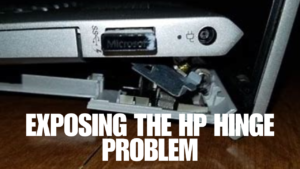Zomato’s Strategic Investment in Blinkit: A Move to Outpace Rivals Swiggy and Zepto

In the rapidly evolving landscape of e-commerce, Zomato has strategically positioned itself to capitalize on the burgeoning quick commerce sector. The company’s recent substantial investment in Blinkit signifies a pivotal move aimed at enhancing its foothold in the market and outpacing rivals such as Swiggy and Zepto. Quick commerce, characterized by the promise of ultra-fast delivery times, has seen a surge in consumer demand, driven by the need for convenience and immediacy. This shift in consumer expectations has prompted companies to innovate and adapt swiftly.
Zomato’s decision to invest in Blinkit is motivated by several key factors. Primarily, the rising popularity of rapid delivery services presents a lucrative opportunity for growth. Consumers today expect their purchases, ranging from groceries to essential items, to be delivered within minutes rather than hours or days. By aligning with Blinkit, Zomato aims to meet this demand efficiently, leveraging Blinkit’s established infrastructure and operational expertise in quick commerce.
Moreover, the competitive landscape necessitates such strategic moves. Swiggy and Zepto, prominent players in the quick commerce domain, have been aggressively expanding their services to cater to the growing market. Zomato’s investment in Blinkit is not just a reactionary measure but a proactive strategy to strengthen its market position. By integrating Blinkit’s capabilities, Zomato can offer a more comprehensive service portfolio, encompassing both food delivery and rapid commerce, thereby appealing to a broader customer base.
Furthermore, this strategic investment aligns with Zomato’s broader vision of becoming a holistic service provider in the e-commerce ecosystem. The company aims to transcend beyond food delivery, tapping into various verticals to create a more diversified and resilient business model. Blinkit’s inclusion under Zomato’s umbrella is a testament to this vision, as it enables Zomato to diversify its revenue streams and mitigate risks associated with market fluctuations in the food delivery sector.
In essence, Zomato’s investment in Blinkit is a calculated move designed to leverage emerging market trends, outmaneuver competitors, and align with long-term goals of business diversification and customer satisfaction.
Understanding the Competitive Landscape: Swiggy and Zepto
The quick commerce market has witnessed a surge in activity, driven by the growing demand for rapid delivery services. Key players like Swiggy and Zepto have positioned themselves at the forefront of this evolving sector, each leveraging distinct strengths to capture market share. Swiggy, a well-established entity in the food delivery space, has diversified its offerings to include groceries and essentials through its Instamart service. This move has been instrumental in expanding its customer base and increasing market penetration. Swiggy’s extensive delivery network and robust logistics infrastructure provide a competitive edge in ensuring swift and reliable service.
On the other hand, Zepto, a relatively new entrant, has made significant strides by focusing exclusively on the quick commerce niche. Zepto’s value proposition lies in its promise of ultra-fast delivery, often within 10 minutes, which has resonated strongly with consumers seeking convenience and immediacy. The startup has rapidly scaled its operations, benefiting from substantial investments that fuel its expansion and technological advancements. Zepto’s agility and innovative approach have enabled it to carve out a significant share in the highly competitive market.
The competitive landscape, however, is not without its challenges. Both Swiggy and Zepto face the formidable task of maintaining high service standards while managing operational costs. The quick commerce model demands substantial investment in technology, logistics, and workforce, creating a continuous pressure to optimize efficiency and profitability. Additionally, regulatory compliance and sustainability concerns add layers of complexity to their operations.
Despite these challenges, the opportunities in the quick commerce market are abundant. The growing consumer preference for convenience, coupled with the increasing penetration of e-commerce, presents a fertile ground for innovation and growth. This dynamic environment has set the stage for Zomato’s strategic investment in Blinkit, as it seeks to outmaneuver rivals and capitalize on the burgeoning demand for rapid delivery services.
Blinkit: Zomato’s Ace in Quick Commerce
Blinkit, formerly known as Grofers, is a notable entity in the burgeoning quick commerce industry. Established in 2013, Blinkit initially entered the market as an online grocery delivery service, quickly gaining traction due to its user-friendly platform and efficient delivery system. Over the years, Blinkit has evolved and expanded its services, now catering to a broad spectrum of consumer needs with an emphasis on speed and convenience.
The growth trajectory of Blinkit has been significant. By leveraging data analytics and a robust supply chain network, the company has consistently scaled its operations to meet increasing demand. Currently, Blinkit operates in multiple cities across India, offering a variety of products ranging from groceries to household essentials, all delivered within a remarkably short timeframe. This rapid delivery service, often under 15 minutes, distinguishes Blinkit in the competitive quick commerce landscape.
Several features underscore Blinkit’s competitive edge. The platform’s integration of advanced technology ensures swift order processing and real-time tracking, enhancing customer satisfaction. Moreover, Blinkit’s vast network of micro-warehouses strategically placed within city limits enables it to promise and deliver on the quick commerce model effectively. These elements collectively contribute to Blinkit’s robust market position.
The strategic investment by Zomato in Blinkit is poised to further bolster Blinkit’s capabilities and market reach. Zomato, a prominent player in the food delivery sector, brings to the table an extensive user base and expertise in last-mile logistics. The synergies between Zomato and Blinkit are evident; both companies prioritize rapid delivery and exceptional customer service. By leveraging Zomato’s technological infrastructure and logistical acumen, Blinkit can enhance its operational efficiency and scale its services more effectively.
This partnership is anticipated to create a formidable force in the quick commerce industry, allowing Blinkit to outpace rivals such as Swiggy and Zepto. The combined strengths of Zomato and Blinkit are expected to drive innovation, optimize delivery times, and expand market penetration, ultimately providing consumers with unparalleled service and convenience.
Future Prospects and Market Implications
Zomato’s strategic investment in Blinkit is poised to significantly reshape the quick commerce landscape. This move underscores Zomato’s commitment to not only expanding its market share but also enhancing customer experiences through rapid delivery services. By integrating Blinkit’s capabilities, Zomato can leverage advanced logistics and technology to offer faster and more reliable delivery options, potentially setting new standards in the industry.
From a market perspective, this investment may catalyze a shift in consumer behavior. As customers grow accustomed to quicker delivery times, their expectations for convenience and speed will likely rise, compelling other players in the market, such as Swiggy and Zepto, to innovate and improve their offerings. This competitive pressure could usher in a new era of technological advancements, with companies investing heavily in AI, machine learning, and last-mile delivery solutions to stay ahead.
Financially, Zomato’s enhanced service proposition through Blinkit could lead to increased customer retention and higher order volumes, boosting revenue streams. However, it also presents challenges, such as the need for substantial capital investment and operational scalability. Zomato’s ability to manage these aspects efficiently will be critical in determining the long-term financial viability of this venture.
For the quick commerce industry at large, Zomato’s bold move signifies a trend towards consolidation and strategic partnerships. Smaller entities may find it increasingly difficult to compete, prompting a wave of mergers and acquisitions. This could lead to a more consolidated market with fewer but more robust players, each striving to offer unparalleled service quality.
In conclusion, Zomato’s investment in Blinkit is more than a tactical maneuver to outpace rivals; it is a visionary step towards redefining the quick commerce sector. As the industry evolves, the ripple effects of this strategic alliance will be felt across market dynamics, consumer expectations, and technological innovation, ultimately shaping the future of e-commerce.





